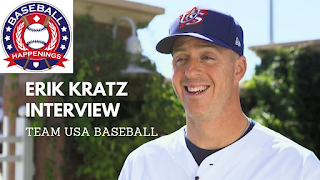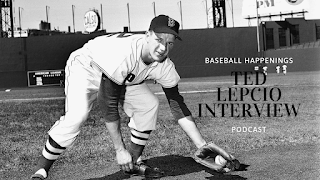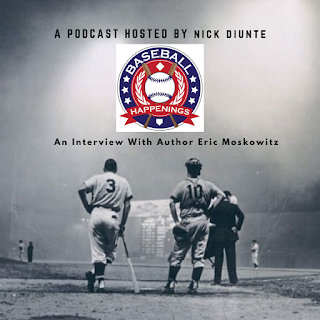Throughout a long Major League Baseball career, one might have hundreds who they call teammates, but only a select few they can call true friends. Despite bonding while traveling the country for six months trying to win a World Series championship, as soon as teammates clean out their lockers, they often go their separate ways until spring training.
With the platitudes expressed for Darren Daulton in the wake of his passing, one of his teammates shared how a union formed before their first major league game together persisted through Daulton's final hours. Don Carman, a former Philadelphia Phillies pitcher who broke into the majors with Dalton in 1983, explained the nature of their transcendental friendship.
“We had something special, because in baseball I have a lot of really good friends that I spent time with, [but] the day they stop playing, they go home and you never hear from them again,” Carman said via phone shortly after Daulton's death. “It happens all the time. … That's the rule. … He and I had an amazing friendship, a wonderful friendship, [we were] very close, and I loved him like mad. There's not a time where we wouldn't hug, kiss each other, and say, 'I love you,' because you knew you had something different.”
To understand just how their relationship started, go back to the 1983 season when the two were a battery for the Philadelphia Phillies Double-A team in Reading, Pennsylvania. After both had breakout seasons in the minors, the National League champion Philadelphia Phillies called them up when rosters expanded. Arriving in the heat of a pennant race, the pair watched as future Hall of Famers Steve Carlton, Joe Morgan, Tony Perez, and Mike Schmidt worked at clinching the pennant. Finally, with the pennant in hand, manager Paul Owens inserted Daulton into the starting lineup on the next-to-last game of the 1983 season.
In the bottom of the 8th inning, Daulton scored the go-ahead run against the Pittsburgh Pirates, giving Owens the opportunity to summon Carman to seal the deal. The lefty spent most of the season as Reading's closer and he now was in the position to get a save in his major league debut. As a nervous Carman approached the mound, a familiar face greeted him with the right message to get him under control.
Just how Daulton helped to guide Carman in his debut, Carman noted that “Dutch” had a magnetism that drew his teammates to follow him. From the beginning of his career, Daulton had an uncanny ability to inspire that was evident across the league.
“The strange thing about him, everybody in baseball knows he was one of the most special baseball-type people—he was the consummate player and everybody looked up to him, even when he was 26-27, the 35-year-olds looked up to him," Carman said. “He was the leader of every team he was on. I've never met a better leader, just an amazing guy; he was like that in the minor leagues. He was a natural.”
Daulton made it a point to extend himself not only to his teammates, but to everyone around him who made the game run. Carman felt it was how “Dutch” treated those whose names did not show up in the box score that was a true testament to his character.
“It didn't matter if you were grounds crew or the owner of the team, everybody wanted to be around him and everybody felt special,” he said.“It was every person; it didn't matter who you were. If the owner of the team came over, he would walk over, grab him by the face with both hands and kiss him on the cheek. If it was the guys who just dragged the field and they walked by, 'Dutch' would do the same thing. It didn't matter who you were, you demanded his respect because he gave it to you, and everybody felt special.
“There's something about his personality that gave you this feeling that he really does care. This moment he cares about me, enough to pay attention to me, to listen to me, to smile at me, to make eye contact with me, and hear what I just said.”
Philadelphia's love affair with Dutch grew as his spirit and personality resonated with the Phillies faithful. The Phillies honored their leader when they inducted him into their Wall of Fame in 2010. Even amongst the of Hall of Famers, Carman's keen eye noted that in later years, Daulton stood out as the obvious fan favorite.
“When you go to the Wall of Fame in Philly, they call them all out on the field,” he said. “They always call him out last because they know he's going to get the biggest ovation every time. You're talking about Steve Carlton and Mike Schmidt, who spent more time there and are in the Hall of Fame. People would cheer, but when he came out, the place would erupt. He even made fans feel special."
While Daulton stayed in the spotlight, he and Carman remained tight behind the scenes. They participated in each other's weddings while becoming confidants throughout tough times in their lives. They stuck together even when many walked away from Daulton when he released his controversial book, “If They Only Knew” in 2007.
“Throughout all three marriages, he and I talked because he knew he could trust me," Carman said. “He would come to me for advice through all of this, so we've become very close over the years. When he went through his bizarre time when he wrote the book [If They Only Knew], a lot of people didn't know how to respond; I didn't know how, but it wasn't by leaving him because I knew this person and something was wrong. It turns out he had a brain tumor. As soon as they removed the bulk of the brain tumor, the crazy behavior changed and he was back. It was amazing."
When Daulton's brain cancer recently took a turn for the worse, Carman dropped what he was doing to make the three-hour trip to Daulton's bed side. For the next two weeks, he made spending time with Dutch his main priority.
“I kind of put work on hold for the last two weeks because that's when he made a really downward turn,” he said. “I've been with him every other day for the past 15 days. He lives three hours away. I would drive up, see him, and leave [his wife] Amanda, her mother, and his parents. I would spend the day there, go to a hotel, and then come back see him, and then drive home. A couple of days later, I would do it again.”
Even in his final days, Daulton stayed true to form, mustering up whatever strength he had left to make Carman feel welcome. This time, Carman did most of the heavy lifting.
“Obviously it was difficult,” he said. “The last ten days, he couldn't talk, but he could listen, smile, and hug you with one arm as the right side was paralyzed. Since he could do that, I did the talking.”
Carman spent five hours with Daulton on the day he died. Speaking with him only two days later, Carman did his best to hold back tears while humbly expressing gratitude for being there one last time for his good friend.
“I'm just glad I could talk to him.”
* This article originally appeared in the now defunct Sports Post on August, 10, 2017.
With the platitudes expressed for Darren Daulton in the wake of his passing, one of his teammates shared how a union formed before their first major league game together persisted through Daulton's final hours. Don Carman, a former Philadelphia Phillies pitcher who broke into the majors with Dalton in 1983, explained the nature of their transcendental friendship.
“We had something special, because in baseball I have a lot of really good friends that I spent time with, [but] the day they stop playing, they go home and you never hear from them again,” Carman said via phone shortly after Daulton's death. “It happens all the time. … That's the rule. … He and I had an amazing friendship, a wonderful friendship, [we were] very close, and I loved him like mad. There's not a time where we wouldn't hug, kiss each other, and say, 'I love you,' because you knew you had something different.”
To understand just how their relationship started, go back to the 1983 season when the two were a battery for the Philadelphia Phillies Double-A team in Reading, Pennsylvania. After both had breakout seasons in the minors, the National League champion Philadelphia Phillies called them up when rosters expanded. Arriving in the heat of a pennant race, the pair watched as future Hall of Famers Steve Carlton, Joe Morgan, Tony Perez, and Mike Schmidt worked at clinching the pennant. Finally, with the pennant in hand, manager Paul Owens inserted Daulton into the starting lineup on the next-to-last game of the 1983 season.
In the bottom of the 8th inning, Daulton scored the go-ahead run against the Pittsburgh Pirates, giving Owens the opportunity to summon Carman to seal the deal. The lefty spent most of the season as Reading's closer and he now was in the position to get a save in his major league debut. As a nervous Carman approached the mound, a familiar face greeted him with the right message to get him under control.
“I remember being scared to death,” he said. “Then he [Daulton] came out the mound and said something like, 'We made it. You and I made it. We're here, and we're playing in the big leagues.' I remember still being afraid, but at least I didn't have to worry about how to pitch and what I wanted to do because the guy knew me so well. And I did, I had a 1-2-3 inning. It was obviously my first outing, but it was as much as being comfortable with knowing that I didn't have to think; all I had to do, whatever he put down, I'm going to throw it because I couldn't think because I was so scared. I was the closer in Reading for the last three months of the season, so he knew me, what I wanted to do, and what made me effective, so I didn't have to worry about that.”
Just how Daulton helped to guide Carman in his debut, Carman noted that “Dutch” had a magnetism that drew his teammates to follow him. From the beginning of his career, Daulton had an uncanny ability to inspire that was evident across the league.
“The strange thing about him, everybody in baseball knows he was one of the most special baseball-type people—he was the consummate player and everybody looked up to him, even when he was 26-27, the 35-year-olds looked up to him," Carman said. “He was the leader of every team he was on. I've never met a better leader, just an amazing guy; he was like that in the minor leagues. He was a natural.”
Daulton made it a point to extend himself not only to his teammates, but to everyone around him who made the game run. Carman felt it was how “Dutch” treated those whose names did not show up in the box score that was a true testament to his character.
“It didn't matter if you were grounds crew or the owner of the team, everybody wanted to be around him and everybody felt special,” he said.“It was every person; it didn't matter who you were. If the owner of the team came over, he would walk over, grab him by the face with both hands and kiss him on the cheek. If it was the guys who just dragged the field and they walked by, 'Dutch' would do the same thing. It didn't matter who you were, you demanded his respect because he gave it to you, and everybody felt special.
“There's something about his personality that gave you this feeling that he really does care. This moment he cares about me, enough to pay attention to me, to listen to me, to smile at me, to make eye contact with me, and hear what I just said.”
Philadelphia's love affair with Dutch grew as his spirit and personality resonated with the Phillies faithful. The Phillies honored their leader when they inducted him into their Wall of Fame in 2010. Even amongst the of Hall of Famers, Carman's keen eye noted that in later years, Daulton stood out as the obvious fan favorite.
“When you go to the Wall of Fame in Philly, they call them all out on the field,” he said. “They always call him out last because they know he's going to get the biggest ovation every time. You're talking about Steve Carlton and Mike Schmidt, who spent more time there and are in the Hall of Fame. People would cheer, but when he came out, the place would erupt. He even made fans feel special."
While Daulton stayed in the spotlight, he and Carman remained tight behind the scenes. They participated in each other's weddings while becoming confidants throughout tough times in their lives. They stuck together even when many walked away from Daulton when he released his controversial book, “If They Only Knew” in 2007.
“Throughout all three marriages, he and I talked because he knew he could trust me," Carman said. “He would come to me for advice through all of this, so we've become very close over the years. When he went through his bizarre time when he wrote the book [If They Only Knew], a lot of people didn't know how to respond; I didn't know how, but it wasn't by leaving him because I knew this person and something was wrong. It turns out he had a brain tumor. As soon as they removed the bulk of the brain tumor, the crazy behavior changed and he was back. It was amazing."
When Daulton's brain cancer recently took a turn for the worse, Carman dropped what he was doing to make the three-hour trip to Daulton's bed side. For the next two weeks, he made spending time with Dutch his main priority.
“I kind of put work on hold for the last two weeks because that's when he made a really downward turn,” he said. “I've been with him every other day for the past 15 days. He lives three hours away. I would drive up, see him, and leave [his wife] Amanda, her mother, and his parents. I would spend the day there, go to a hotel, and then come back see him, and then drive home. A couple of days later, I would do it again.”
Even in his final days, Daulton stayed true to form, mustering up whatever strength he had left to make Carman feel welcome. This time, Carman did most of the heavy lifting.
“Obviously it was difficult,” he said. “The last ten days, he couldn't talk, but he could listen, smile, and hug you with one arm as the right side was paralyzed. Since he could do that, I did the talking.”
Carman spent five hours with Daulton on the day he died. Speaking with him only two days later, Carman did his best to hold back tears while humbly expressing gratitude for being there one last time for his good friend.
“I'm just glad I could talk to him.”
* This article originally appeared in the now defunct Sports Post on August, 10, 2017.







































